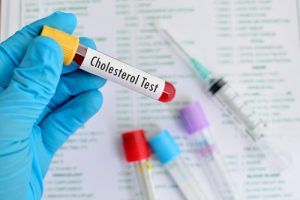Video Link: https://vimeo.com/293248149
Video Download: Click Here To Download Video
Video Stream: Click Here To Stream Video
Video Link: https://vimeo.com/293248366
Video Download: Click Here To Download Video
Video Stream: Click Here To Stream Video
Cholesterol and Testosterone
 Cholesterol is one of the building blocks of human life and a precursor to testosterone, but it is also one of the most dangerous health factors when cholesterol Levels fall out of balance, especially with regard to LDL Cholesterol, VLDL Cholesterol, and Triglycerides.
Cholesterol is one of the building blocks of human life and a precursor to testosterone, but it is also one of the most dangerous health factors when cholesterol Levels fall out of balance, especially with regard to LDL Cholesterol, VLDL Cholesterol, and Triglycerides.
The older that we get, the more vulnerable that we become to high cholesterol, that translates primarily in the forms of cardiovascular conditions, which can seriously impede health and wellness, including Atherosclerosis, Heart Attack, Stroke, and Heart Disease. Too little Cholesterol and the body can not properly produce androgen hormones like Testosterone for instance.
Cholesterol can be determined with a blood test
Cholesterol Levels are one of many factors that our hormone doctors will analyze in your annual checkups. Every person has their own specific healthy range of Cholesterol, dependent on a number of factors, including current health status, as well as genetic and family history of cardiovascular disease.
For example, there are a number of lifestyle and health factors that can increase the dangers of high cholesterol, including smoking, diabetes, hypertension, and obesity.
Be aware of your own family history of Cholesterol and be very conscious of your diet. Obesity causes a decline in Testosterone levels because belly fat is thought to hold or increase estrogen.
Talk to our physicians about your Cholesterol levels
When you talk to our hormone specialist doctor about your cholesterol, he or she will suggest an ideal cholesterol range based on these and other factors. If the physician considers you to be at high risk for health conditions related to High Cholesterol, he or she will likely recommend treatment or significant lifestyle changes if your LDL Cholesterol Levels are more than 70.
On the other hand, those that are of mid-tier health risk resulting from cholesterol are suggested to keep LDL Cholesterol concentrations below 130. Those with the lowest risk have the most leeway and are generally suggested to keep LDL Cholesterol below 160.
Restricting your caloric intake of meat and fatty food is one of the best ways to keep these levels in check.
As we learn more and more about the risks associated with cholesterol, physicians have begun to target cholesterol levels earlier in a patient's life, especially for those that find themselves at moderate or high risk of cholesterol complications.
The following are some things that you can do to keep your cholesterol levels in check:
Medication for Cholesterol Control
The most obvious treatment option available for patients is Cholesterol-Lowering Medications.
Other factors can provide long-term benefits or the slow accrual of benefits over time, but for patients at elevated risk, there is nothing that will get cholesterol under control as quickly and effectively as Cholesterol Drugs. Ask our physicians if any of these medications will interfere with your natural testosterone levels.
There are a number of different options available for patients that need medicine for Cholesterol, the most common of which are Statin Drugs. Statins are highly effective and fast-acting and can drop Bad Cholesterol Levels from between twenty and fifty percent.
For patients that cannot take Statins safely, or for those that only suffer from modestly high cholesterol, other options are available for patients, including fibrates, bile acid resins, and niacin. Be aware that statins can negatively affect your testosterone levels, by lowering them.
Be sure to get your testosterone levels checked every 3 months when doing any kind of statins program. Speak with one of our physicians to find out more about how statins can influence your Testosterone baseline.
Exercise to Keep Cholesterol Under Control
Cardiovascular exercise is a fantastic way to keep cholesterol levels balanced. Even staying on your feet and finding ways to remain active, even in lieu of specific exercise, can provide immense benefits.
Exercise reduces concentrations of LDL cholesterol in the body while also encouraging the body to keep HDL cholesterol levels higher, by an average of around ten percent.
It is generally agreed upon that 45 minutes to an hour of steady and regular physical activity will provide ample benefit to the patient, between five and seven days per week.
A good rule of thumb is that patients should shoot for 10,000 steps per day, which averages out to about five minutes per hour of walking.
Limit Saturated Fat to Protect Cholesterol Balance
Back in the 1980s and 1990s, physicians and researchers were under the impression that all forms of cholesterol in diet could negatively impact cholesterol levels in the bloodstream.
While it is true that the cholesterol that you eat does cause cholesterol levels in the blood to increase, the main health issues arise from your body's own manufacture of LDL and VLDL Cholesterol. Furthermore, consumption of saturated fat, one of the building blocks of cholesterol, is one of the primary causes of high cholesterol.
Replacing saturated fat with heart-healthy fats such as olive oil, vegetable oil, and Omega-3 Fatty Acids can do wonders for your cholesterol, as you are limiting cholesterol by limiting the presence of one of the key components of cholesterol from meeting your liver, where cholesterol is synthesized.
Increase Fiber in Your Diet to Reduce Cholesterol
In addition to reducing the levels of Cholesterol and Saturated Fat in your diet, it's also highly beneficial to increase your fiber intake in order to slow down the rate at which your body absorbs Cholesterol, allowing more to pass through your digestive tract without being absorbed through the intestines.
Specifically, Soluble fiber is the most effective means to limit the absorption of cholesterol, because Soluble fiber traps cholesterol, allowing it to pass through the digestive system more freely. Excellent sources of soluble fiber include barley, oats, and dried beans, as well as specific fiber supplements.
Eat More Fish to Keep Cholesterol in Check
Omega-3 Fatty Acids are one of the best tools at your disposal to help you control your cholesterol through your diet. Omega-3s are available in high concentrations in cold-water fish, including tuna, salmon, and halibut.
Some Omega-3s can also be found in plant products, including walnuts, flaxseed, canola, and soybeans, but the full range of Omega-3s are available in their most useful concentrations in fish products, though fish-oil capsules can be just as effective. Most physicians suggest adding fish to your diet between two and three times weekly.
Alcohol Consumption Can Mitigate High Cholesterol
Alcohol has been shown to provide a number of positive benefits—when drank in moderation. There is strong evidence that moderate drinking can help promote higher HDL Cholesterol Levels.
Most suggest two beverages per day for men, while only one per day for women. Of course, if you don't drink already, there are alternatives, and the risk of potentially developing a bad habit can easily outweigh the benefits provided by drinking.
Green Tea May Reduce Cholesterol
Especially if you drink a lot of juice or soda, Green Tea can do wonders for both your health and your cholesterol levels. For one, soda and juice are loaded with empty calories which are unhealthy for you because your body instantly utilizes and stores those calories.
Furthermore, there is growing evidence that compounds within the Green Tea itself can suppress LDL Cholesterol to the benefit of the patient, even when taken in capsule form.
Nuts Can Help Control Cholesterol
As we mentioned earlier, nuts contain Omega-3 Fatty Acids, but they also contain other ingredients that help keep cholesterol in check. Among the best nuts to eat to help control your cholesterol are Almonds and Walnuts. The major issue with nuts is that they are loaded with calories, so they should only be eaten in moderation.
Switch from Butter and Transfats to Healthier Oil-Based and Stanol-Based Spreads
Transfats have quickly fallen out of favor over the past decade, as it was discovered that they did far more harm than good with regard to your cholesterol levels.
Today, new, healthier alternatives are becoming available, including whipped spreads based on heart-healthy oils, and products such as Stanols, which are a plant-form of cholesterol that blocks the absorption of Cholesterol while being passed through the digestive tract without issue.
Stop Smoking to Strengthen Your Cardiovascular System and Improve Your Cholesterol Levels
Smoking is one of the unhealthiest and most dangerous things that you can put your body through in the long-term. In addition to the obvious dangers of tar and nicotine, smoking also suppresses HDL Cholesterol Levels in the bloodstream while elevating LDL Cholesterol.
Keeping your cholesterol levels healthy is a factor in helping to keep your testosterone levels healthy.
Contact our clinic, so we can schedule you to get a cholesterol lipid panel conducted, we have affiliated LabCorp and quest diagnostic centers we can send you to all over the United States. Please fill out our contact form on our web site, and one of our clinical advisers will give you a call to talk about your options.
Contact Us Today For A Free Consultation

- Ten Simple Steps That You Can Take To Knock Out Stress [Last Updated On: May 2nd, 2024] [Originally Added On: June 11th, 2020]
- Natural, Simple Ways to Improve Your Sleeping Habits [Last Updated On: April 18th, 2024] [Originally Added On: June 26th, 2020]
- Five Kinds of People that Have a Lot of Sex! [Last Updated On: April 11th, 2024] [Originally Added On: July 17th, 2020]
- Ditch the Alcohol if You Want to Maximize the Benefits and Gains From Weightlifting [Last Updated On: January 22nd, 2024] [Originally Added On: July 18th, 2020]
- 13 Issues That Can Kill Your Libido [Last Updated On: March 15th, 2024] [Originally Added On: July 19th, 2020]
- Ten Ways to Enhance Your Metabolism [Last Updated On: June 28th, 2024] [Originally Added On: July 20th, 2020]
- Fourteen Common Causes of Fatigue and What You Can Do to Improve Your Energy Levels! [Last Updated On: June 21st, 2024] [Originally Added On: August 4th, 2020]
- Testosterone's Effects Upon the Human Body [Last Updated On: June 11th, 2024] [Originally Added On: August 9th, 2020]
- Fifteen Foods That Can Help You Get Your LDL Cholesterol Under Control [Last Updated On: May 1st, 2024] [Originally Added On: November 28th, 2020]
- Exercise Optimizes Testosterone Production [Last Updated On: January 29th, 2024] [Originally Added On: February 13th, 2021]
- How to Get Bigger Arms [Last Updated On: November 25th, 2024] [Originally Added On: March 14th, 2021]
- It’s True: Stress Causes Hair Loss and Thinning Hair, According to Science [Last Updated On: August 29th, 2024] [Originally Added On: May 4th, 2021]
- Magnesium and Preventing Kidney Stones [Last Updated On: October 22nd, 2024] [Originally Added On: January 18th, 2023]
- Get Pro-active, Don’t Depend on a GP only! [Last Updated On: October 24th, 2024] [Originally Added On: February 1st, 2023]
Word Count: 1492




















